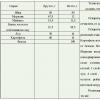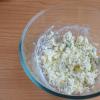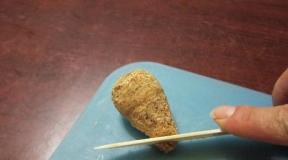Does coffee really dilate blood vessels? Effect of coffee on blood vessels
Day after day, drinking coffee, a person begins to think more and more about the benefits and dangers of the drink for the body. Some people report a deterioration in well-being, while others say they feel a surge of strength and energy.
In connection with such disagreements, the question often arises: does coffee dilate or constrict blood vessels? There is no doubt that some influence of the drink on the body occurs. Coffee lovers note that blood pressure changes after drinking a cup of coffee. Is this really so and is it worth fearing such consequences?
How coffee affects blood vessels
People suffering from migraines and frequent headaches claim that only a cup of coffee can bring them back to normal and bring joy to life. And in such words there is no exaggeration, it really is. Headache is usually caused by vasodilation of the brain, and caffeine, which constricts the vessels, can stop it.
In this case, for a positive effect, it is best to drink natural coffee:
- in pure form, without adding sugar;
- on a full stomach;
- in small quantities;
- not before bed.
Many headache medications contain caffeine, which confirms the benefits of the drink for people with low blood pressure.
After drinking a cup of coffee, the vessels and digestive tract constrict, ensuring the normal functioning of such an important body system. By starting the digestion processes, caffeine has a beneficial effect on the organs. It is important to remember that you should not drink coffee on an empty stomach, otherwise the increased idle work of the stomach will do more harm than good.
An amazing and inexplicable fact - coffee also dilates blood vessels! For example, in the muscle tissues of the body. Doctors do not give precise explanations about this, but, nevertheless, it turns out that there is no definite answer to the question: coffee narrows or dilates blood vessels. It is necessary to take into account which organs are in question.
After drinking a cup of a drink containing caffeine, interesting processes take place in the human circulatory system. The heart vessels dilate, thereby increasing blood circulation, and blood pressure rises. Thanks to this, the state of health improves, an energetic rise occurs, weakness and drowsiness go away.
But it is worth considering that this scenario is not suitable for people with high blood pressure. For them, just a cup of coffee can cause a deterioration in their health. Caffeine will cause headaches, fatigue, and heart problems.
How to avoid the harmful effects of caffeine on blood vessels
If you have problems with well-being due to the fact that coffee dilates blood vessels or, conversely, narrows them, and you don't want to give up a cup of your favorite drink, you need to soften the effect of caffeine.
An ordinary lemon slice will help neutralize the effect of coffee on blood vessels, if you add it to a hot drink. Also, the caffeine strength is perfectly softened by cream or diluting the drink with milk.
You can make delicious and healthy coffee with spices. In addition to new taste sensations, seasonings will add a healing effect to the drink. Many of them are able to extinguish the power of caffeine, affect the work of important body systems, regulate pressure and cleanse blood vessels.
Decaffeinated drinks are not recommended because they have some negative characteristics. In pursuit of vascular rescue, other organs can be damaged.
In this case, it is better to give preference to a cup of coffee with a minimum caffeine content - ristretto. Due to the special preparation method, the dose of caffeine in this drink is almost twice reduced than in a standard portion of espresso. But it tastes more intense and aromatic, so the benefits are obvious.
Contraindications
There are times when no amount of tricks to reduce the effects of caffeine on health help. A person becomes ill after a cup of coffee, dizziness, weakness, pain in any organs begins. Then it becomes clear that the only way to avoid problems is to completely stop drinking this invigorating drink.
Coffee is contraindicated:
- with heart disease;
- with high blood pressure (hypertensive patients);
- small children and the elderly;
- having diseases of the gastrointestinal tract;
- with kidney problems.
It is possible that you will have to replace coffee with green tea, which invigorates the body as well. In addition, the drink has a beneficial effect on well-being, having a lot of useful properties.
Before drinking a cup of strong coffee, it is worth assessing the health of your body, comparing the share of benefits and harms in a particular case.
Coffee is a favorite drink of many people. More than 85% of the population use it daily and do not even think about how it affects the blood vessels and vital organs. While caffeine is energizing, performance-enhancing and helps relieve headaches, if consumed in excess, it can cause significant harm.
How are coffee and blood vessels connected, and how to properly take this aromatic drink to avoid harm to health? This will be discussed in the article below.
Effects on blood vessels
Many people are wondering if coffee really affects the blood vessels of a person or if this common opinion is wrong. Doctors assure that any product containing caffeine can affect the body.
Basically, coffee has an expanding effect on the vessels, the only exceptions are:

- capillaries of the brain;
- capillaries of the abdominal cavity (except those in the kidneys).
This effect is achieved due to the pronounced stimulating and invigorating effect of the drink. To activate the central nervous system and myocardium, the body reduces blood flow to virtually all internal organs.
A decrease in the lumen of the capillaries in the brain stimulates its activity and prevents the appearance of drowsiness. The expansion of the walls of the main vessels of the myocardium has a positive effect on the work of the muscle in conditions of increased efficiency.
If a person drinks 3 cups of coffee (or more) during the day, caffeine (related to alkaloids such as methylxanthines) takes the place of adenosine, as a result of which almost all blood vessels are narrowed and the signal to the brain about the need for rest slows down. Also, caffeine has little effect on the pituitary gland, which leads to an increase in hormone production.
The main direction of secretion is the adrenal glands, in which adrenaline is processed. After these hormones enter the bloodstream, the following changes occur:
- the speed and frequency of breathing increases;
- pulse quickens;
- the diameter of the pupils increases.
Every connoisseur of a fragrant drink should remember that it has an effect on almost all arteries and capillaries, so it should be taken with caution.
When coffee narrows and dilates blood vessels
Does coffee constrict or dilate blood vessels, and what does the effect depend on? Doctors claim that caffeine is a unique substance that affects various veins and arteries in different ways.

After drinking a cup of coffee after 10 minutes, the expansion of blood vessels in the myocardium, muscles and kidneys will begin. But in the brain and most of the internal organs, the capillaries, on the contrary, narrow.
The effect will be this every time, regardless of the individual characteristics of the person and the presence of diseases.
Effects on veins and arteries
Doctors warn patients that coffee should be drunk with caution, since the drink in any case affects the state of the vessels of the whole body. If a person suffers from hypertension, low blood pressure or VSD, it is recommended to consult a doctor about how much coffee you can drink.
Brain
Improving the general condition and increasing efficiency after drinking the drink is associated with its specific effect on the vessels of the brain. Under the influence of caffeine, the arteries in the organ begin to narrow..
In addition, the following changes occur in the brain:
- the need for oxygen supply is significantly reduced;
- metabolism accelerates;
- the functioning of cortical and subcortical structures is normalized and accelerated;
- brain departments begin to work much faster;
- due to a decrease in the vascular lumen, the feeling of drowsiness disappears, a person feels energetic and vigorous.
Heart muscle and coronary arteries
Drinking coffee has a positive effect on the myocardium, the drink generally stimulates and normalizes blood circulation. Some cardiologists are of the opinion that it significantly reduces the likelihood of developing angina pectoris and heart attack, reduces pain in the muscle itself for various cardiac pathologies.
The effect of coffee on the myocardium is as follows:
.jpg)
- increasing the speed of passage of the excitation wave with a weakened and lowered pulse;
- normalization of blood circulation in problem areas, thanks to this effect, coffee is useful for atherosclerosis (only in the initial stages);
- increased resistance to physical activity (the effect is achieved due to the normalization of blood flow).
As the coronary vessels dilate under the influence of caffeine, oxygen supply to the heart is facilitated. It is also more quickly saturated with nutrients.
This effect makes the drink indispensable for lowering blood pressure, as it helps to normalize the latter in the shortest possible time.
Effect on blood pressure
Since the drink has an expanding effect on blood vessels, immediately after drinking it, the pressure rises in both hypertensive and hypotensive patients. That is why it is not recommended to abuse the drink for patients suffering from high blood pressure, as this can cause a hypertensive crisis.
.jpg)
Patients suffering from vascular pathologies need to know that the drink increases the upper blood pressure by 5-12 mm Hg. Art., and the lower - by 5-6 mm Hg. Art. The duration of the effect lasts for 3-4 hours.
If a person regularly drinks large amounts of coffee and "depends" on the drink (and it can be addictive), then the increase in pressure will be insignificant, or will be completely absent.
Effects on the body in vascular diseases
Recent medical research has confirmed that the intake of caffeine in the body can trigger the onset of dystonic attacks. More than 40% of patients suffering from vegetative-vascular dystonia confirm that after drinking the drink they begin to feel uneasy, anxiety intensifies.
Since the VSD initially negatively affects the central nervous system, it is better to refuse coffee for this disease. But you need to remember that you cannot abruptly quit the drink, since caffeine is addictive.
.jpg)
Lack of intake of the substance can provoke severe headaches, general weakness and increased appetite.
As for such a common disease as atherosclerosis, coffee is possible with it only at stages 1 and 2 of the lesion. It should be borne in mind that the drink should be rather weak, preferably diluted with milk.
With hypertension, coffee should be completely abandoned, as it will increase the load on the vessels.
Can I drink it with hypotension? Doctors assure that there are no absolute contraindications for this, but you should not abuse the product anyway.
Vascular indications for use
Under the influence of coffee, some vessels dilate, but at the same time, constriction of others is observed. So in what cases can you drink it?
- low blood pressure;
- weakened pulse;
- periodic swelling of the feet due to circulatory problems;
- frequent headaches and migraines;
- deterioration in performance;
- increased fatigue;
- painful menstruation.
To prevent the occurrence of complications, before recommending this drink, the doctor must diagnose and exclude the presence of pathologies that require drug treatment.
Who shouldn't drink coffee, and what illiterate use can lead to
Despite the fact that caffeine has a beneficial effect on the body, in some cases it must be completely excluded from the diet:
.jpg)
- age less than 12 years;
- carrying a child and lactation period (during pregnancy, it is forbidden to drink coffee in the first trimester);
- hypertension, because with this disease coffee can cause sleep disturbances;
- violation of blood flow in the myocardium, caffeine can provoke nervous overexcitement and psychosis;
- aneurysm of blood vessels in any area, since the drink can enhance destructive changes;
- the presence of cranial lesions;
- glaucoma (increased pressure in the eyeball);
- recovery after surgery.
Permissible daily dose
To reduce the risk of negative effects on blood vessels, coffee should be consumed in moderation.
The optimal dose per day is 600 mg, while the intake should be divided several times. It is not recommended to drink more than 4 cups of coffee per day, regardless of age and general health.
If you ignore these tips, you cannot exclude the possibility of developing side effects such as:
- Depletion of the cardiovascular system.
- Problems with blood flow to the brain.
- Decreased mental alertness.
- Increased risk of developing heart disease.
- The occurrence of painful sensations in the stomach, dysfunction of the digestive tract.
Is it harmful to drink coffee? If a person allows himself no more than 2 cups a day, there will be no harm to health from the drink. Therefore, most experts recommend stopping just at this amount.
A person uses coffee every day and does not think about the effect of the drink on systems and organs. The effect of coffee on blood vessels is different. For one circle of people, caffeine is beneficial, for another - irreparable harm. It depends on internal factors and the body's response to the product.
The brain and the effects of coffee
In its activity and nature of the effect, caffeine is similar to the neurotransmitter adenosine, which is produced by brain cells. The action of the substance is aimed at slowing down the activity of nerve cells. The brain receives a signal to rest and sleep.
When a large amount of coffee is ingested, caffeine takes the place of adenosine. It blocks the transmission of the rest message and constricts the blood vessels. After the "processing" of the brain, the pituitary gland is connected to the work, producing a large amount of hormones. The secretion is sent to the adrenal glands, where it is processed into adrenaline.
When the adrenal hormone is released into the bloodstream, a person has characteristic symptoms:
- increased breathing;
- increased heart rate;
- dilated pupils.
In addition to the effect of caffeine on the brain, the substance also affects the vascular system associated with brain activity.
The mechanism of action of caffeine on the vascular system
The efficiency of the vasomotor center directly depends on the state of the vessels. Caffeine can narrow or widen your arteries. This leads to various consequences.
After drinking coffee, the coronary vessels begin to increase in size, and the blood is distributed unevenly throughout the system. This causes increased blood supply to some organs and insufficient blood supply to others. Muscles are toned. The nervous system is excited, and the body's performance is activated.
Interesting! It is believed that the effect of natural coffee on blood vessels is different from the effect of soluble powder. Both types of drink contain the same amount of caffeine, but the concentration of trace elements in freshly ground beans is higher.
Effect of caffeine on blood vessels
Some coffee lovers, drinking more than one cup of hot drink every day, are confident in the positive effect of caffeine on the vascular system and the body as a whole. Others restrict coffee consumption to a minimum. The dispute is inappropriate - caffeine has a different effect on certain types of blood vessels.
Vasodilation
With the expansion of blood vessels, blood flow increases, more oxygen enters the system, and the removal of harmful substances is accelerated. This is how coffee acts on the vessels that feed:
- heart;
- respiratory system;
- kidneys;
- musculature.
The vessels supplying the muscles with blood expand and tone the muscle tissue. Mental and physical performance temporarily increases. When a person plays sports or physically works, lactic acid is excreted more quickly from the body. The damaged muscles are restored in less time.

The coronary arteries dilate and provide an increased flow of micronutrients and oxygen to the heart. In this case, the frequency of strokes of the organ may increase, but not significantly. In the existing atherosclerotic areas, blood flow increases. A person who suffers from hypotension normalizes blood pressure.
The dilation of the renal arteries slightly slows down the excretion of sodium ions. The vasodilating effect is manifested in a diuretic effect, improving the functioning of the musculature of the organ.
Vasoconstriction
Caffeine has a vasoconstrictor effect on the brain. This leads to the normalization of low blood pressure and relief of migraines. The onset of headache is due to the expansion of the lumen of blood vessels. The enlarged ducts press on the nerve endings and cause spasms. Therefore, many people with low blood pressure and headache seek to improve their condition with a cup of hot and aromatic coffee.
In addition to the effect of coffee on the blood vessels of the central mechanism, the drink can have two effects on the gastrointestinal tract. With the narrowing of the vessels feeding the organs of the gastrointestinal tract, the production of gastric juice and bile increases. The secreted secretion is an aggressive environment, therefore, coffee should be consumed only after meals. This is the only way to ensure better digestion. Otherwise, the chances of developing diseases of the digestive organs are high.
Interesting! Coffee lovers have cold hands due to the sharp narrowing of blood vessels under the skin.
The benefits of caffeine for the brain
Constriction of blood vessels in the brain is not the only valuable property of coffee. The benefits of the drink are much broader:
- temporary improvement in mental performance;
- increased pressure with hypotension;
- acceleration of metabolism;
- preventing the development of ischemic disease;
- normalization of the endocrine system.

The unusual effect of the drink is to prevent tissue oxidation. By acting as an antioxidant, coffee slows down the aging process and reduces the risk of tumor formation. Caffeine is recommended for people who have:
- menstrual and headaches;
- decreased heart rate;
- constant feeling of tiredness and drowsiness;
- lethargy and physical weakness.
For medicinal purposes, coffee is prescribed only by the attending physician after conducting the necessary research. This will eliminate the pathology of internal organs and blood vessels of the brain.
Interesting! Caffeine is an alkaloids. This explains its ability to invigorate, but when consumed excessively, activity is suppressed.
Who should refrain from drinking coffee?
Coffee cannot be attributed to one of the groups of drugs, but the drink has an effect on the vascular system and internal organs. To eliminate undesirable consequences, it is recommended to limit the use of caffeine:
- adolescents;
- women who are in the 2nd and 3rd trimester of pregnancy;
- hypertensive patients;
- with insomnia or nervous excitability;
- patients with mental disabilities.

Under these conditions, the maximum number of cups of coffee should not exceed 2 per day. Complete exclusion of the drink from the diet is justified in the following cases:
- early pregnancy and lactation;
- hypertension;
- acute disorders of the vascular system of the brain and heart;
- increased content of sodium ions in the blood;
- period of exacerbation of gastrointestinal diseases;
- aneurysm;
- children and old age;
- the recovery period after surgery performed on the heart muscle, arteries or brain;
- increased eye pressure;
- atherosclerosis.
It is harmful to drink coffee while taking medications. This will provoke the development of an acute form of diseases of the digestive system.
How much coffee is harmless?
Advice! If it is impossible to give up coffee, then it is better to buy coffee beans in vacuum packaging, which completely retains the tart aroma.
To reduce the magnitude of the effect of coffee on blood vessels, it is worth adhering to some conditions:
- Drink the drink in an amount not exceeding 350-400 ml. Add milk or fresh cream to each subsequent dose.
- Give preference to ground coffee rather than instant coffee.
- Drink a caffeinated beverage only after meals.
- Drink coffee with caution in case of heart disease.
For some, one cup a day is enough, but some coffee lovers are not limited to even 4. It all depends on the person's well-being, the system's reactions to caffeine. With constant "wear and tear" the body gets physical and nervous exhaustion.

The effect of coffee on blood vessels is due not only to a person's predisposition to certain diseases. More often it is the individual characteristics of the body that allow you to consume large amounts of caffeine without any visible harm to health. Addiction is the most harmless consequence of overusing caffeinated beverages. The best solution would be the "golden mean" - to make a couple of cups of aromatic coffee a day.
Almost every one of us loves to have a cup of coffee in the morning or pamper ourselves during the day. But what do we know about the effect of coffee on the body? Someone is convinced that coffee and caffeine have a positive effect on blood vessels and pressure, while someone has convincing objections. Let's take an open-minded look at the effects of coffee and caffeine on the central nervous system and how coffee affects the blood vessels in the brain, expands or narrows them.
There is no doubt that coffee, due to its composition and of course the caffeine contained in it, invigorates and has a stimulating effect on the entire body as a whole and of course on the central nervous system of a person. Coffee affects the blood vessels in the brain. The benefits of coffee for the human body are obvious, but improper use can be harmful to health and negatively affect your well-being. To avoid this, you need to know how coffee works, its composition and daily intake that is safe for health.
The composition of coffee, its effect
Of course, the most active active ingredient in coffee is caffeine. It is he who has such a stimulating effect, drives away drowsiness, and affects the entire central nervous system of the body. The drink has this effect not only due to caffeine. Coffee contains many other components and their compounds:
- carbohydrates
- magnesium
- potassium
- iron
- manganese
- essential oils
These components in the composition of your favorite drink are useful for humans and with reasonable consumption of coffee, it has a positive effect on the body and our well-being:
- invigorates and gives strength
- relieves fatigue and increases efficiency
- significantly enhances mental alertness and concentration
- improves mood
Safe daily coffee intake

If you want coffee not only to invigorate you in the morning, but also to have a positive effect on the central nervous system and blood vessels of the brain, it is important not to exceed the daily intake of the drink. If consumed excessively, coffee and the caffeine it contains will only harm your health - this can manifest itself in:
- abnormalities in blood pressure
- there may be heart rate irregularities
- headaches
- fatigue and decline in brain activity
- nervousness as a result of depletion of the nervous system
The maximum daily intake of caffeine that is safe for humans is 600 mg. This is the daily norm, you do not need to consume that amount at one time! Reasonable use, when there can only be benefits from coffee - this is no more than 4 cups per day.
And here we are talking only about normal, natural coffee. Benefit can be obtained by using only natural ground coffee. Although good coffee is more expensive, it is natural coffee that benefits. During processing, instant "coffee" loses all its original properties and almost all useful natural components.
The effect of coffee and caffeine on the blood vessels of the brain - expands or narrows
When drinking coffee, it constricts the blood vessels in the brain, which helps to normalize a sharp drop or low blood pressure. After all, it is it that causes migraines, headaches, so people suffering from such ailments should drink coffee, which will make it possible to cope with pain and stop it. Since this effect of caffeine on the central nervous system has long been known to physicians, it is included in most headache medications. This effect of coffee and caffeine on the blood vessels of the brain is well known to hypotonic patients, therefore it is often better to drink a cup of natural coffee to increase blood pressure than to resort to medications.
And you know that the effect of vasoconstriction coffee has on the organs of the digestive tract, while improving its functioning, accelerates metabolism and digestion, stimulates appetite. Just take into account that coffee is a rather aggressive drink, and in order not to harm the stomach, it is better not to drink it on an empty stomach.
Effect of coffee on the central nervous system
As you can see, the effect of coffee and caffeine on the blood vessels of the brain can be very beneficial. At the same time, do not forget that the main active ingredient of this drink also affects the nervous system of our body. We're talking about caffeine.
Caffeine actively stimulates brain activity and function. When stimulating the active work of the brain, there is an expansion of blood vessels and an acceleration of blood circulation in the nervous system. This effect of coffee, more precisely the caffeine contained in it, has a stimulating effect on the central nervous system, an accelerated exchange of nerve impulses in cells and neurons occurs. The acceleration of this process is expressed in a feeling of cheerfulness, a surge of strength, and an improvement in mood.
Thanks to this action, every morning we rush to quickly drink a cup of invigorating coffee. This is a natural desire to completely awaken the body from sleep, to get a charge of vigor and clarity of thought. Only a natural product can have such an effect.
It's nice to know that your favorite drink can also be useful. Now drinking coffee will become doubly pleasant, the main thing is to know when to stop.
Coffee has many fans and opponents. Patients' opinions differ about its effect on the human body and the cardiovascular system in particular.
Some patients argue that due to the unique composition a positive effect is provided, others consider caffeine to be the enemy of blood vessels, but who is right, and how does it affect the human body? Coffee expands or narrows the blood vessels of the brain, is there any benefit from drinking it?
Dangerous neighborhood
The invigorating composition has an effect on all systems of the human body. Doctors have proven that not only the cardiovascular, but also the central nervous system falls under its influence. Many consumers claim that it has a positive effect on the endocrine system and enhances the functioning of its organs.
Despite the listed positive qualities, the principle of the action of the components of the drink on the central nervous system should be considered in detail before use. Precautions and knowledge of the rules of correct use will prevent the development of negative consequences.
Composition and action
The main component in the composition is caffeine. The component has the peculiarity of exerting a psychostimulating effect on the parts of the nervous system.
Effects of a fragrant potion on the body
It has been proven that coffee, provided it is consumed in a measured way by people without contraindications, has a positive effect:
- increases mental alertness;
- improves a person's mood;
- enhances performance;
- reduces irritability.
A similar effect is achieved not only thanks to caffeine, but also due to other necessary components:
- carbohydrates;
- fats;
- oils;
- potassium;
- manganese;
- iron;
- magnesium.
Fact! Caffeine belongs to the methixanthine group alkaloids. Such substances are capable of exerting a doping effect, significantly reducing the human body's need for rest, while increasing its efficiency. The action is achieved through psychostimulation of the cerebral cortex.
Roasted grains.
As a result of an overdose, the opposite effect is manifested - the process of transmission of a nerve impulse by cells is inhibited. The photo shows high-quality coffee beans, from which you can prepare a drink that will benefit the cerebral vessels. After the use of permissible doses, the breathing process becomes more frequent and the functional activity of the heart and blood vessels changes.
Coffee has an effect on all organs and systems of the body:
- respiratory;
- digestive;
- endocrine;
- metabolic process;
- heartbeat;
- vascular tone.
The active ingredient is present not only in the grains, but also in the leaves. That is why it is necessary to consider in detail the effect of caffeine on the cerebral vessels. Read the rest of the article to find out how coffee dilates or constricts blood vessels in the brain.
Benefit or harm?
Daily dose
In order for the effect of coffee on the blood vessels of the brain to be only positive, it is important to follow the rules of its use. There is definitely a tolerable daily dose that is beneficial.
Do not exceed the permissible limits
Undue consumption of caffeinated products will harm and cause the following disorders:
- exhaustion of the nervous system;
- disturbances in the work of the cardiovascular system;
- heart rhythm disruptions;
- decreased brain activity;
- intoxication.
Proven! A deadly dose of caffeine is 10 grams per day. Depending on the strength, more than 10 liters of the drink. Based on this information, it should be concluded that death from overdose is rare. It is simply impossible to drink such a volume, first of all, a protective reaction of the body will work - the gag reflex.
The daily intake of caffeine is no more than 600 mg. This volume should be divided into several steps. It is permissible to consume no more than 6 cups of 150 ml per day.
Nevertheless, it should be remembered that such a dose affects the work of the heart, therefore, with tachycardia and other pathologies, the volume must be significantly reduced. The instructions for use should be followed by everyone, excessive consumption of caffeine does not benefit even a healthy body.
The consumer's attention should be stopped on the fact that you can only get benefits from a natural product. Its price is certainly higher, but only such a composition can be beneficial. Granular or freeze-dried coffee goes through many stages of processing, including the process of exposure to extremely low temperatures, during which it loses its original properties.
Useful properties are lost during the preparation of granules.
Coffee is able to expand the vessels of the heart muscle if its concentration exceeds 50 mg; when consumed in smaller doses, the effect will not be noticeable. Long-term use of the drink can become addictive.
Effect of caffeine on the central nervous system
The arteries of the brain and coffee can adequately interact, but the coffee addict should remember that the active component of the drink has properties similar to neurotransmitters.
Caffeine is a powerful neurotransmitter.
For reference! Neurotransmitters are substances that ensure the synthesis of cells of brain activity.
These components are produced by the brain throughout the day, and their amounts can vary significantly. Neurotransmitters slow down the activity of these cells and suppress the distress signal - the human body can simply forget that it needs rest.
With excessive consumption of the drink, not only the cerebral arteries expand, but the activity of the endocrine system also increases. The pituitary gland secretes hormones into the bloodstream, and the adrenal glands provide adrenaline synthesis. Against the background of the release of the hormone adrenaline, the patient's heart rate increases, and the pupils dilate.
The video in this article discusses all the principles of coffee action on the human body.
Effect on the vascular system
How coffee affects the blood vessels of the brain is already known, but it is important to understand that it affects the entire cardiovascular system, therefore, it should be consumed with extreme caution. The impact of a beverage is based on different mechanisms that can act in different directions.
Interaction can be dangerous
Coffee can have central and peripheral mechanisms of action:
- The central effect consists in the influence of the drink on the central organ of the human body, increasing the vascular tone and increasing the activity of the cardiovascular system.
- Due to the peripheral action, the effect on the walls of the arteries, their expansion and relaxation is achieved.
Cardiologists and neurologists say that 1 gram of caffeine is the maximum allowable daily amount. When taken in such a volume, the tone of smooth muscles decreases, the arteries expand. Due to this effect, the blood supply process is improved, the cells are saturated with oxygen and freed from free radicals.
Vasoconstrictor action
When using caffeine, the vasoconstrictor effect is achieved not only in the effect on blood vessels. The substance has a systemic effect, changes occur in the blood flow system of the internal organs.
Artery narrowing process
The table will help you figure out the vasoconstrictor effect of the drink.
| ina on organs and systems of the human body | |
| System | Effect |
| Brain | Decreases the need of cells for oxygen |
| The process of functioning of the cortical and subcortical centers is accelerated | |
| Effective work of brain structures is ensured | |
| The body's need for rest is significantly reduced | |
| Gastrointestinal tract | Increased production of gastric juice |
| The process of breakdown of nutrients is accelerated | |
| The process of intestinal motility slows down | |
| Pelvic organs | Reduces pain during inflammation, decreases premenstrual syndrome in girls |
Based on this information, it should be concluded that coffee narrows the arteries in the brain. Against the background of such an action, the body's need for rest is significantly reduced and the work of the brain increases.
We should not forget that the effect of caffeine on the human body is similar to the effect of doping elements - the composition must be consumed with caution. It is important to remember that the substance for the vessels of the head is not a panacea.
Vasodilator action
Coffee relaxes the walls of the arterial vessels and dilates them. Caffeinated drinks affect not only the heart, but also many other structures in the body.
The vasodilator effect is shown in the photo.
Caffeine provides:
- establishing the process of blood circulation of the heart muscle;
- prevents the manifestation of pain in angina pectoris;
- increases the heart rate;
- accelerates blood flow in atherosclerotic vascular lesions;
- increases the body's ability to exercise;
- increases the contractile ability of muscles and improves blood flow;
- restores damaged muscle structures;
- improves blood flow in the kidneys;
- stimulates kidney function, increasing daily urine output;
- provides the process of saturation of blood passing through the alveoli of the lungs with oxygen.
Despite the fact that the drink has not only a vasodilator, but also a vasoconstrictor effect, it cannot be defined as a neutral element allowed for consumption by all groups of people. In some cases, an invigorating and aromatic drink is beneficial, but often it can be harmful, in view of this, there are contraindications. Only a doctor will tell you what the effect of coffee will be on the cerebral arteries, and you should not neglect the consultation of a specialist.
When should you drink coffee?
The debate about the dangers and benefits of drinks containing caffeine has been going on for a long time, but until now, leading scientists have not come to the only correct opinion.
You should not refuse a cup of a fragrant drink.
The drink has been proven to provide significant benefits in the following situations:
- hypotension;
- slowing down of heart rate;
- manifestation of edema of the lower extremities;
- to eliminate fatigue after a grueling workout;
- severe compressive headache;
- pain during menstruation in girls;
- drowsiness and loss of energy.
Attention! Before using the properties of coffee to increase heart rate or increase blood pressure, you should consult your doctor.
When is it better to get away from the drink
It is impossible to determine coffee medicine, but it is also unacceptable to underestimate the nature of its effect on blood vessels and heart.
The following groups of people should refuse to drink this invigorating and aromatic drink:
- children under the age of 14;
- lactating mothers and women during pregnancy;
- patients with essential hypertension;
- with severe tachycardia;
- with violations of the kidneys;
- pathology of the gastrointestinal tract;
- age over 75;
- after severe TBI;
- patients with severe endocrine system disorders;
- postoperative period;
- mental pathology.
The effect of coffee on the vessels of the brain tissue can be not only positive, but also negative. If there are any limiting factors, you should refuse to take the composition. Undue consumption of caffeine can cause irreparable harm to human health.
Fact! People who regularly consume coffee should carefully consider its quality. The fact is that a low-grade product is the main enemy of the circulatory system!
Benefit and harm
There is no consensus on the balance of benefits and harms of caffeine for cerebral vessels. Many doctors declare that absolutely healthy people need to drink coffee.
Benefit, harm or balance of qualities?
From such a composition, the body draws useful components and the course of vital processes is ensured:
- normalization of blood pressure values \u200b\u200bduring hypotension;
- acceleration of the processes of manifestation of the results of mental work;
- ensuring the flow of the metabolic process;
- slowing down the aging process of the skin;
- establishment of blood flow;
- normalization of digestive function.
It is extremely difficult to answer unequivocally the question of coffee narrows or widens the cerebral arteries. The fact is that it can have a versatile effect, therefore it is worth consuming it with extreme caution.
It is not worth declaring the expressed harmfulness of the composition - an invigorating drink leads to a general improvement in the patient's well-being and has a positive effect on many systems. The basic rule is measured use and refusal of admission by patients with contraindications.
In this article, you will learn about whether coffee dilates or constricts blood vessels. Does the invigorating drink have the same effect on the blood supply of all organs, or are there differences (which ones). In what doses can we talk about the benefits of coffee, and when its use is contraindicated.
- The vasoconstrictor effect of coffee
- Daily dose of coffee
- When you can't drink coffee
- Side effects of the drink
On most of the vessels of the body, coffee, or its active ingredient, caffeine, has an expanding effect. The exceptions are:
- Cerebral vessels.
- Abdominal vessels (except for the renal).
The effect is associated with the general stimulating properties of the drink: to activate the central nervous system and heart muscle, it is necessary to reduce blood flow in the internal organs. The narrowing of the cerebral vessels leads to the activation of brain activity and a decrease in drowsiness. The expansion of the cardiac arteries improves the functioning of the myocardium in conditions of increased efficiency.
The vasodilating effect of coffee
Caffeine relaxes the walls of the arterial vessels and thereby expands them into:
- heart muscle
- skeletal muscles,
- kidneys.
The influence of the drink on these structures and organs is presented in the table:
| Heart | Improving blood supply to the muscle in general Prevention of angina pain syndrome Acceleration of the conduction of the excitation wave at a low pulse Increased blood flow in areas with moderate disturbance of blood flow in atherosclerosis Increased resistance to physical activity |
| Skeletal muscles | Increased blood flow to muscles Acceleration of lactic acid excretion after vigorous training Restoration of damaged muscle structures Increased contractility of muscles |
| Kidney | Moderate stimulation of work and, as a result, an increase in urine output Improving renal blood flow Moderate sodium ion retention |
| Lungs | Improving blood circulation in tissues Acceleration of oxygen saturation of blood passing through the alveoli |
The vasoconstrictor effect of coffee
The vasoconstriction under the influence of caffeine occurs:
- in all parts of the brain,
- in the bloodstream of the internal organs.
The effects of the drink in this case are presented in the table:
Daily dose of coffee
In order for caffeine to have only a positive effect, it is necessary to strictly observe the daily intake of the drink. Exceeding the recommended dose will cause:
- Exhaustion of the cardiovascular and nervous system.
- Increased risk of heart rhythm disturbances.
- Violation of cerebral blood flow.
- Depression of the functions of the brain.
- Toxic phenomena from the gastrointestinal tract.
A lethal dose is considered to be 10 grams of caffeine per day, depending on the type of coffee it is from 10 to 30 liters, so it is almost impossible to die from a large amount of the drink you drink.
The daily intake of caffeine is up to 600 mg, divided into several doses. It is rather difficult to translate these data into precise volumes: the caffeine content in a cup varies depending on the type of coffee from 60 mg (cappuccino) to 100-150 mg (espresso).
It is natural that the stronger the drink, the higher the concentration of caffeine in it and the fewer cups per day you can drink. General recommendations: 4-6 cups of 150 ml per day.
Popular types of decaffeinated drink still contain about 4 mg of caffeine, so if coffee is contraindicated, then this form is also prohibited. And in cases where the daily amount of caffeine must be limited, it is better to drink fresh ground coffee with milk or cream.
If we talk about the beneficial properties of the product in the field of cardiology, then you should only use a natural drink. The soluble form, and even more so the option in sachets, should be discarded due to the unpredictability of the effect of exposure. Coffee dilates all the vessels of the heart muscle, only if its concentration is more than 50 mg, a smaller dose has practically no effect.
With long-term use of large doses, resistance develops - the use of any amount of the drink has no effect on the vessels.
Vascular indications for use
In medical and folk practice, coffee can be recommended for use in the following cases:
- low blood pressure;
- moderate decrease in heart rate;
- slight swelling in the feet area;
- the next day after intense physical training;
- migraine;
- painful periods;
- drowsiness;
- decreased mental and physical tone.
When you can't drink coffee
Despite the fact that coffee is not a drug, its effect on the heart and blood vessels is very significant. Therefore, there are a number of contraindications for drinking this drink:
| Children under 12 years old | Children from 12 to 18 years old |
| Pregnancy in the 1st trimester | Pregnancy in the 2-3 trimester |
| Lactation | The tendency to increase blood pressure (upper - from 140 mm Hg, lower - from 90 mm Hg) |
| Hypertonic disease | Insomnia |
| Acute forms of impaired blood flow in the heart muscle and brain | Nervous excitement |
| Violation of the heart rhythm by the type of tachyarrhythmia | Mental illness with severe agitation (psychosis) |
| Renal dysfunction with large urine production (oliguria) | |
| High blood sodium | |
| Ulcerative lesion of the stomach, intestines during an exacerbation | |
| Pathological vasodilation (aneurysm) of any location | |
| Senile age (over 75-80 years old) | |
| Severe atherosclerotic changes in arterial vessels | |
| Early postoperative period (7-10 days) after any surgical procedures on the heart, blood vessels and brain | |
| Traumatic brain injury | |
| Glaucoma (increased pressure inside the eye) |
Side effects of the drink
The property of coffee to narrow or expand blood vessels is associated with the active agent, caffeine, and, like any active substance, it has a number of adverse effects. Most often they occur when the recommended daily volume is exceeded, but with an individual high sensitivity, negative symptoms may appear even after one cup.
The magic of coffee has been researched for many years, popular and unremarkable, at first glance, the drink conceals many secrets, and one of them worries many patients, coffee expands or narrows them, and why this does not work for everyone and not always. It's time to reveal all the magical effects of a fragrant potion, so beloved by many.
Classification
In fact, coffee differs according to many criteria, and it is possible to find out what kind of effect the output will be only if all factors, even the most insignificant, are taken into account.
So, what are the criteria for dividing the product:
- degree of roasting;
- place of growth;
- grade;
- the amount of water in relation to the main part;
- dose;
- type of product (grains, freeze-dried granules, etc.).
It should be borne in mind that when roasting coffee beans, substances are formed that have not yet been synthesized. Therefore, until now, a product that at least remotely resembled its properties has not been invented.

It is impossible to say for sure about whether coffee narrows blood vessels or expands in the event that we are talking about a ground product, or an instant product, since “foreign substances” such as chicory, preservatives, dyes, etc. can be added to such finished products. ...
But what will happen if you consider the grains, ground yourself, from which a wonderful viscous drink is obtained, which gives vigor.
Source of caffeine
If we discard all doubts about artificial additives, then in its pure form the drink itself consists of more than three hundred elements, but the main of them is caffeine, it is he who is credited with the development of addiction, vigor, increased heart rate, and a rise in blood pressure.
In some cases, this can be considered true, however, the mechanism of action of coffee on the body as a whole can manifest itself in different ways.
The pulse rises - what is happening

The substances increase the heart rate, and this effect has manifested itself in everyone who has ever tried a real, brewed drink. This happens not because coffee narrows or dilates blood vessels, but for a completely different reason.
The constituents directly affect the cells of the heart muscle, while forcing them to contract somewhat faster than usual. The rapid contraction of cardiomyocytes is an increase in heart rate, which means an increase in the number of beats per minute. At the same time, systole and diastole remain uniform, and there will be no other significant changes on the ECG.
When the head does not hurt, but it gets in the way
A similar feeling is familiar to people with a hangover syndrome, as well as to those who are faced with migraine attacks, when a headache heats the brain to the limit. Anyone who has drunk a strong drink in a given situation knows that after a mug of freshly brewed, the head comes back to order quickly enough.
Why is this happening?
- The fact is that caffeine dilates the vessels responsible for the outflow of blood from the head.
- Conversely, the vessels, which are responsible for the inflow, constrict.
By stimulating the outflow of blood in the cerebral veins, the head quickly passes, since there is no excess fluid in the cerebral cavity. The same effect can be achieved by simply swallowing a caffeine pill, but this is acceptable if you do not have concomitant pathologies, when an alkaloid is contraindicated.

Note! If the patient has a history of caffeine intolerance, or an allergic reaction, then drinking coffee is prohibited, without any assumptions.
Or maybe it was the other way around?
Without a doubt, everything is clear with cerebral venous vessels, and this is not just speculation by scientists, but repeatedly confirmed experimentally data that have been carried out for a long time using caffeine tablets, as well as with liquid drinks of proper quality.
Contrary to popular belief, an invigorating drink acts in different ways on certain parts of the body, and the vessels are no exception, so we can say that coffee narrows the vessels. Some may consider this a paradoxical misunderstanding, but the fact remains.
Peripheral vessels, including venous vessels, constrict, the inflow and outflow of blood changes in contrast to normal values. Of course, such a phenomenon is not so significant, and in most cases such vasoconstriction does not bring any discomfort to a person, it is hardly possible to see a deathly pale person after one mug.

Need more coffee
Due to the effect on the vessels, significant changes can be observed with an overdose of caffeine, in particular, this applies specifically to the peripheral vessels, which is why the limbs change their shade to bluish, or whitish.
You can watch the video in this article for more information on the symptoms of a coffee overdose.
Note! Coffee is a multifaceted drink that affects many systems, so you need to drink it very carefully, without overdoing it.
The scent that separates day from night
Aromatic coffee is unlike anything else, but does it have an effect on the body? After all, anyone can recognize its smell, especially if the drink is brewed by hand.
The aroma of coffee, as such, does not affect the blood vessels in any way, it does not narrow or expand them, however, the invigorating effect in the morning is achieved precisely because of the aroma, and not any other properties.

Note! Even without tasting coffee, you can experience a surge of strength of joy and vigor, but in order for the effect of the active components to spread directly to the vessels, you need to take at least a sip of the aromatic drink.
Hypertension and coffee mania
If you already understood that coffee narrows or expands blood vessels depending on where the vessel itself is located, then with hypertension and hypertension not everything is so simple, but all because research in this area continues to this day.
Does coffee increase blood pressure, because blood vessels should narrow immediately after drinking a mug?
- Recent studies prove that blood pressure values \u200b\u200bdo become higher, however, this applies only to patients with hypotension.
- The controversy surrounding hypertension remains open, so some cardiologists allow the consumption of coffee, and some strictly prohibit it.

Note! Despite the fact that the questions in the case of compensated and decompensated hypertension remain open, there are many other contraindications for drinking coffee, so if the doctor recommends stopping the consumption of caffeine, then his opinion will be priority.
Caffeinated and non-caffeinated drinks
It is important to understand that the main effect on blood vessels is mainly caffeine, and not other components. At the same time, the alkaloid is also present in other drinks that are used in everyday life.
Therefore, it is necessary to realize that the substance contained in other drinks has the same effect on the body. Consider caffeinated beverages and the amount of active ingredient in them.
Note! It is caffeine that narrows blood vessels or expands them, no matter what type of drink you choose!
It is important to understand that the values \u200b\u200bindicated in the table are quite relative, since everything depends on the active ingredient.
Let's take a closer look:
- 1 black tea bag can be brewed in a standard mug, and the caffeine content in it will be 0.04 - 0.07.
- The same 1 tea bag can be used to brew a thermos designed for two mugs, but the concentration of the alkoloid remains the same, 0.04 - 0.07. Thus, drinking the entire thermos, a person uses the same dose of the active substance as in the first case.
Very often this misconception concerns coffee, patients refer to the fact that they drink a “weak” drink. For coffee there is no concept of “strong” or “weak”, for it there are concepts of dose. The concentration of caffeine in an espresso mug (60-70 ml.) And in a latte mug (200-250 ml. In the photo) is exactly the same.

It is interesting! Mate tea is still not reliably attributed to caffeine-containing drinks, referring to the fact that the substance contained in such an invigorating mate is not caffeine, but its analogue (matein). At the same time, some scientists consider matein and caffeine as synonymous concepts, however, it was not possible to find exact values.
When should you drink coffee?
The debate about the dangers and benefits of drinks containing caffeine has been going on for a long time, but until now, leading scientists have not come to the only correct opinion.

The drink has been proven to provide significant benefits in the following situations:
- hypotension;
- slowing down of heart rate;
- manifestation of edema of the lower extremities;
- to eliminate fatigue after a grueling workout;
- severe compressive headache;
- pain during menstruation in girls;
- drowsiness and loss of energy.
Attention! Before using the properties of coffee to increase heart rate or increase blood pressure, you should consult your doctor.
When is it better to get away from the drink
It is impossible to determine coffee medicine, but it is also unacceptable to underestimate the nature of its effect on blood vessels and heart.
The following groups of people should refuse to drink an invigorating and aromatic drink:
- children under the age of 14;
- lactating mothers and women during pregnancy;
- patients with essential hypertension;
- with severe tachycardia;
- with violations of the kidneys;
- pathology of the gastrointestinal tract;
- age over 75;
- after severe TBI;
- patients with severe endocrine system disorders;
- postoperative period;
- mental pathology.
The effect of coffee on the vessels of the brain tissue can be not only positive, but also negative. If there are any limiting factors, you should refuse to take the composition. Undue consumption of caffeine can cause irreparable harm to human health.
Fact! People who regularly consume coffee should carefully consider its quality. The fact is that a low-grade product is the main enemy of the circulatory system!
Everything is under tight control
Is it possible to control everything, and how to do it.
- If the effect of caffeine on the blood vessels is really important for the patient, then it is possible to exclude it altogether, replacing it with chicory, or any herbal tea. The alkaloid content will be zero, and you don't have to think about whether coffee expands blood vessels or something else.
- If, nevertheless, we are talking about caffeine-containing drinks, then laboratory data will be required to determine the exact dose, but if this is not possible, then you can completely use the table above, only in this case you will have to study all the nuances of making tea, including bagged options.
- Despite the fact that all varieties are different, it is necessary to rely only on personal preference, since the manufacturer does not provide data on the concentration of alkaloid in each of the varieties.

Without exception, all drinks have different rules for preparation, if you want to know most accurately how much caffeine you consume, then the instructions for preparation must be followed exactly to the smallest detail.
Coffeemania in full swing
If coffee has been a hobby for a long time, then it is necessary to control its consumption. In addition to vascular pathologies caused by just the same consumption of caffeine in unreasonable quantities, disorders of the central nervous system can manifest, psychoses form, insomnia appears, and even heart rhythm disturbances.
Tea and coffee, although they are familiar drinks for every person, are still dangerous.
Note! Any type of coffee contains caffeine and other active substances, so they will affect the body in the same way, even if the price exceeds several million, it will still affect the vessels, narrowing or expanding them.
Is it possible to do without caffeine at all
An ordinary person very often uses drinks that contain such an active substance as caffeine, which explains the fact that not only coffee expands or narrows blood vessels, but other drinks too.
It is important not only to understand that coffee in excessive quantities can be very harmful, but also that any drinks in a certain dose can have a similar effect. In any case, you should not abuse caffeine, especially in cases where problems with blood vessels already exist.
Such a favorite drink as coffee is widely used all over the world. It gained popularity for its extraordinary taste, exquisite aroma and invigorating properties. A mug of strong coffee adds strength, drives away drowsiness and improves mood. In addition, with the help of coffee, you can relieve headaches and normalize low blood pressure. What is the reason for this effect of the drink on the human body? And is its use harmless for health?
Many people are interested in the question: does coffee constrict blood vessels or expand? Indeed, with many vascular and other diseases, doctors prohibit the use of such a drink. It is important to know what effect the drink has on the body and in what cases it is contraindicated for people.
Effect of coffee on blood vessels
The main component of the drink is caffeinewhich is capable of both narrowing and expanding veins and arteries. Its effect on the body is ambiguous. For example, the vessels of the brain narrow after drinking coffee, which explains its property to normalize the state when the pressure drops. Coffee is indicated for people suffering from headaches and migraines. Indeed, as a rule, the cause of such ailments is precisely the expansion of the cerebral vessels. Accordingly, any substance that narrows them cope with the pain syndrome at the same time, stopping it.
The vessels of the tissues of the organs of the digestive tract also become narrower, due to which their functioning improves and the process of digestion is accelerated. That is why often after drinking coffee, there is a desire to eat solidly.
At the same time, the vessels in the muscle tissues of the body expand after a cup of the aromatic drink. Why this happens, medicine does not find an exact explanation. Doctors strongly recommend not to abuse coffee and drink no more than 2-3 cups a day. Otherwise, you can cause significant harm to the body.
Do not forget that caffeine is an alkaloid, and in small doses it invigorates, and in large quantities– inhibits activity.
It is undesirable to drink coffee in the afternoon and at night, as this will weaken the processes of inhibition of the cells of the cerebral cortex and, as a result, it will not be possible to fall asleep for a long time.
Effect of coffee on blood pressure
 To understand why coffee constricts blood vessels or expands, it is necessary to find out its effect on the circulatory system of the human body. Caffeine entering the body has an exciting effect on the vasomotor center. As a result, the coronary vessels of the heart expand and blood flow in the system accelerates. There is a redistribution of blood in the body, increased blood circulation and increased pressure. As a result, the state of health becomes more vigorous, fatigue recedes, physical and mental activity is activated, and working capacity improves. However, such a pronounced effect is observed only at a constantly reduced pressure, which is the norm for humans.
To understand why coffee constricts blood vessels or expands, it is necessary to find out its effect on the circulatory system of the human body. Caffeine entering the body has an exciting effect on the vasomotor center. As a result, the coronary vessels of the heart expand and blood flow in the system accelerates. There is a redistribution of blood in the body, increased blood circulation and increased pressure. As a result, the state of health becomes more vigorous, fatigue recedes, physical and mental activity is activated, and working capacity improves. However, such a pronounced effect is observed only at a constantly reduced pressure, which is the norm for humans.
With elevated blood pressure, coffee can cause dizziness, weakness, and even a hypertensive crisis (with abuse), therefore, people with hypertension are not recommended to consume the drink. If a caffeine addiction has arisen, then a strong aromatic drink should be alternated with green tea, which also invigorates well and at the same time tones up, being safe for health.
Contraindications
- Elderly and childhood.
- Atherosclerosis.
- Ischemia.
- Hypertension.
- Peptic ulcer and gastritis.
- Glaucoma.
- Kidney disease.
To reduce the negative effect of coffee on blood vessels, it is recommended to drink it in combination with dark chocolate, milk or cream.



















